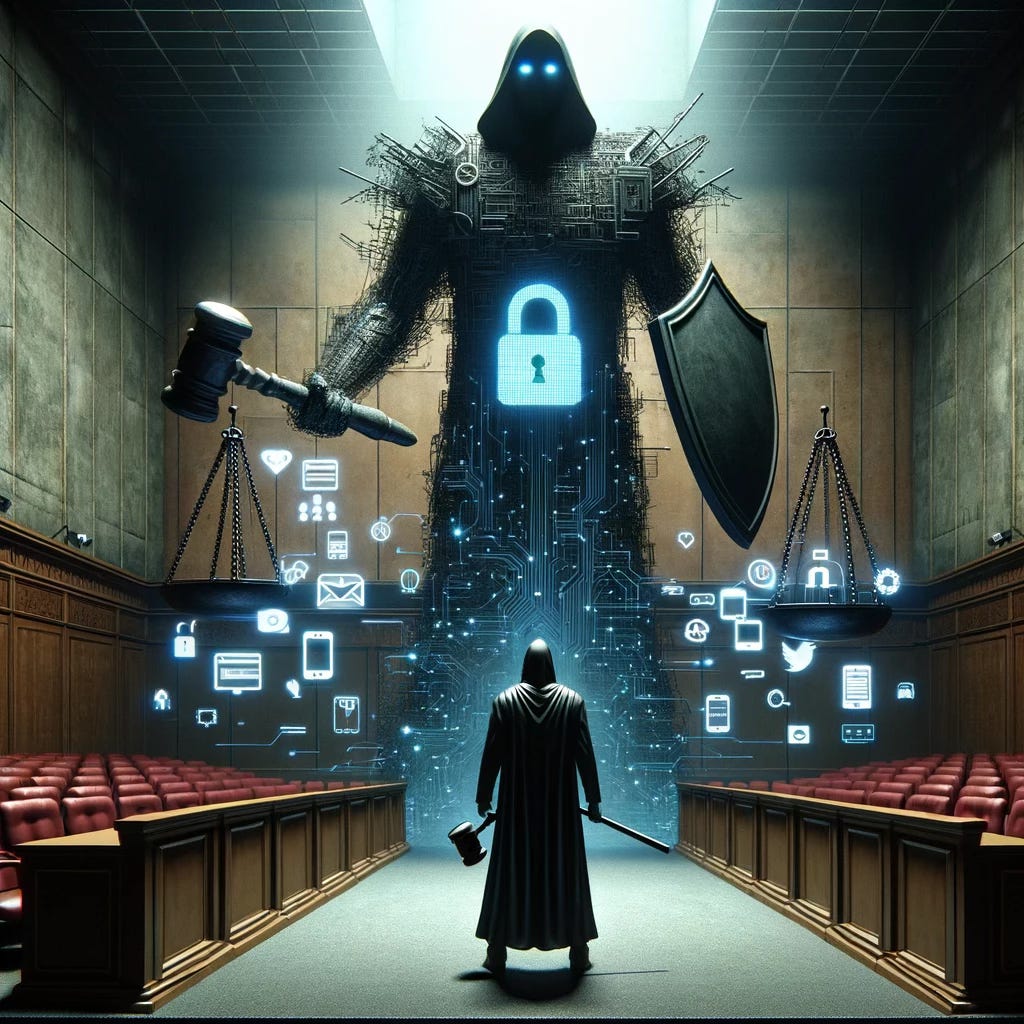In an age where the digital ether is thick with the exchange of bytes and bits, a seismic shift is underway, one that could redefine the boundaries of privacy and power in our digital society. At the heart of this revolution, a David-versus-Goliath legal battle is unfolding, pitting everyday digital citizens against the towering might of Silicon Valley's tech giants.
The crux of this clash? A groundbreaking lawsuit filed by a coalition of concerned citizens and digital rights advocates, alleging that several tech behemoths have been covertly amassing vast amounts of personal data, far beyond what is necessary for their services, and using it to sculpt a digital panopticon, the likes of which Orwell himself might not have dared to imagine.
As the legal drama unfolds in a courtroom that has become a battleground for the soul of the internet, the implications ripple outwards, touching every facet of our digital lives. At stake is not just the outcome of this particular lawsuit, but the very essence of privacy in a world where our digital footprints are tracked, traced, and traded with abandon.
The defendants, a who's-who of the tech world, maintain their innocence, asserting their practices are not only legal but essential for the innovative services that have become intertwined with our daily lives. They argue that this legal challenge threatens to stifle innovation and disrupt the digital ecosystem that has spurred unprecedented connectivity and convenience.
Yet, beneath the surface of this legal skirmish lies a deeper narrative, one that speaks to the heart of the human condition in the 21st century: the quest for autonomy and dignity in the shadow of digital omnipotence. This lawsuit serves as a proxy for a broader societal debate about the trade-offs between convenience and privacy, between innovation and integrity.
As we stand on the precipice of this digital abyss, peering into the murky depths of data lakes filled with our reflections, one cannot help but ponder the future that awaits us. Will we chart a course that navigates the narrow strait between Scylla and Charybdis, balancing the benefits of digital innovation with the sanctity of our private lives? Or will we find ourselves adrift in a sea of surveillance, our every move monitored by the unblinking eye of algorithms?
This legal saga is more than just a courtroom drama; it is a litmus test for the soul of our digital society. As the gavel falls, echoing through the halls of justice, it signals a call to action for all of us, a reminder that in the age of information, the most precious commodity is not data, but the dignity of the individual.
In this unfolding narrative of privacy, power, and digital destiny, we are all participants, all authors of the next chapter. The question now is, what kind of story do we want to write?


